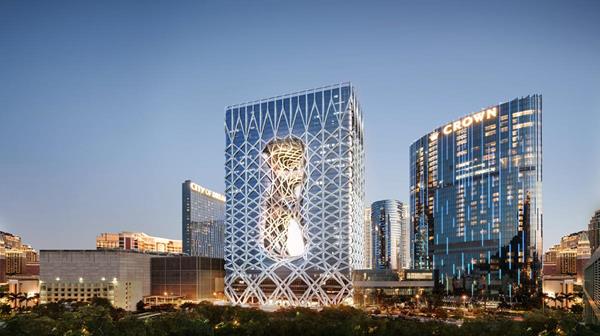It's not just Las Vegas and Macau any longer. Gaming companies are tapping new markets to develop in and, oftentimes, it's taking them far from home.
Baltimore-based Cordish Companies, for instance, is going from Charm City to El Foro. The company has submitted plans to the Madrid Regional Autonomous Government to develop Spain's first Integrated Entertainment Resort Destination in the city of Madrid.
The proposed $2.2-billion resort and entertainment district, called Live! Resorts Madrid, will be located on approximately 300 acres in the Torres de la Alameda sector of Madrid—a location easily accessible to many Spanish locals and to Western Europeans. As part of a major growth corridor, the new Live! District is estimated to attract over 675,000 new visitors to Madrid in its first year and increase tourist nights by over 1,680,000 annually.
The complete Live! District, at full build-out, will include up to 2,700 new hotel rooms, international restaurants, nearly 275,000-square-feet of convention and meeting space, and entertainment venues.
The project would be the first of its kind in Europe, Cordish said. Most European casinos are small operations, generating an average of $11.3 million, according to a 2016 report by PwC, exploring the possibilities for integrated resort casinos in Europe. The firm concluded that there is an opportunity for a gaming resort at the scale of Las Vegas or Macau, notwithstanding potential regulatory and development pitfalls.
Several similar proposals in Spain have stalled, including one pushed by Sheldon Adelson's Las Vegas Sands, which abandoned a massive "EuroVegas" proposal outside Madrid in 2013.

Macau and Beyond
Cordish isn't the only gaming company looking to expand beyond its home borders. This week, Hong Kong-based (and U.S.-listed) Melco Crown Entertainment Chairman and CEO Lawrence Ho said he wants to be the first resort operator to use Macau as the launchpad for a global hotel brand, starting with a $1-billion development on Macau’s Cotai strip in the first half of 2018. The first Morpheus hotel will be a "futuristic high-rise" designed by late architect Zaha Hadid, with 780 guestrooms along with suites, sky villas and duplex villas.
Along with developing a global hotel brand, Melco Crown is planning international expansion beyond its Macau flagships with casino projects in Cyprus, Russia and other Asian countries. “It’s a global footprint that we are developing,” Ho said. “We have done well in Macau and we want to see how we can do even better internationally.”
In November, Melco secured permission to develop a casino resort in Cyprus, an island nation in the Mediterranean. Its first major expansion outside of Macau is the City of Dreams Manila, which opened in the Philippines in early 2015. According to exchange filings, Ho is also the chairman of a holding company that opened a casino in Russia last year.
“In terms of getting the name out there and growing the customer database, it does make sense to pursue non-gaming opportunities globally,” Grant Govertsen, a Macau-based gaming analyst at Union Gaming Group, told BusinessWorld. “There’s little land available for gaming development in Macau, he added. “New development that can move the needle for most Macau’s casino operators effectively has to come from overseas development at this point.”
The company's plan makes sense. Recently, Macau got new casinos from U.S.-based Las Vegas Sands and Wynn Resorts--the latter costing an estimated $4.2 billion.

Macau's Economy and Casinos
Asian-based gaming companies looking beyond Macau also makes sense in the wake of the territory's economic slump. Earlier this year, we noted that the slower Chinese economy and a fierce anti-corruption campaign deep into its third year, Macau’s casinos--which represent 95 percent of the city’s economy--have struggled to turn a profit. In March, Wells Fargo noted that hotel rates for Sands China properties in Macau had dropped to $155 per night--their lowest point since the previous August.
But developers aren't giving up on Macau yet, and not just because the "specially administered region" is the only place in China that allows casino gambling. While Ho is looking to expand overseas to Japan and Vietnam, he said that he is confident about the company’s prospects in Macau, where new resort openings seem to be contributing to a rebound from a two-year gaming slump.
“We are in a recovery. That recovery is not going to be the same as the recovery during the global financial crisis,” Mr. Ho said. “This time around, it’s different. It’s going to be more of a natural recovery.”
In November, the Macau brought in revenue of $2.36 billion, according to government data, at the top end of analyst expectations for a 10-15 percent rise. Even better: The figure was a drop from the previous month, when revenue had been boosted by a national holiday week.
Gross gaming revenue for Macau casinos is expected to be flat to up 10 percent next year, versus an estimated 3-percent to 6-percent drop this year and a sharp drop of 34 percent in 2015, according to Sophie Lin, a credit analyst at S&P global ratings. “The opening and ramping up of new casinos, better infrastructure connecting Macau with mainland China, and stabilizing regulations are the major factors that will fuel a rebound in the gaming industry,” Lin added.
